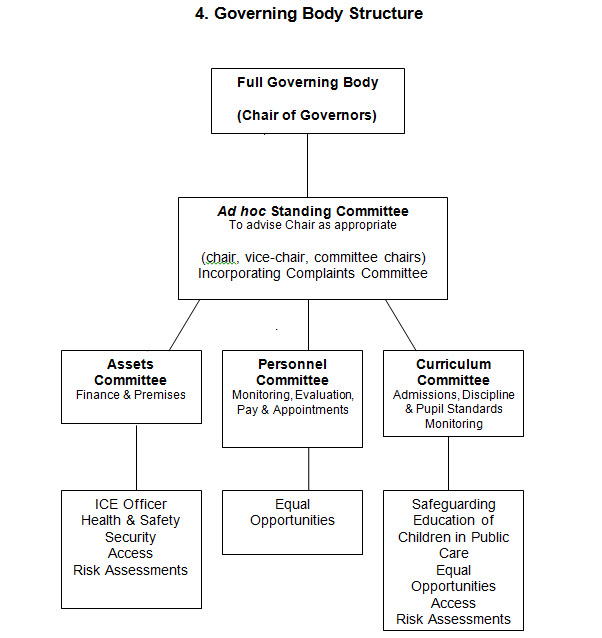ROLE OF THE SCHOOL GOVERNORS
The role of the school governor and governing bodies.
The role of the school governor is demanding but very rewarding and is a good way to give back to your local community. School governing bodies are responsible for working with the school to ensure that it delivers a good quality education. Together with the headteacher, who is responsible for day-to-day management, they set the school's aims and policies.
Governors have three core strategic functions:
They also carry out a number of other important duties, which include:
The role of the school governor is demanding but very rewarding and is a good way to give back to your local community. School governing bodies are responsible for working with the school to ensure that it delivers a good quality education. Together with the headteacher, who is responsible for day-to-day management, they set the school's aims and policies.
Governors have three core strategic functions:
- Ensuring clarity of vision, ethos and strategic direction;
- Holding the headteacher to account for the educational performance of the school and its pupils
- Overseeing the financial performance of the school and making sure its money is well spent
They also carry out a number of other important duties, which include:
- Determining how the school's budget is spent
- The appointing and dismissing of staff
- Hearing appeals and grievances
- Forming policy on the school's curriculum and collective worship
- Setting standards for pupils' behaviour and discipline
- Making sure school buildings are welcoming and safe
- Setting and monitoring the school's aims and policies
The Governing Body has specific legal responsibilities including:
- The responsibility for the overall conduct of the school
- Setting targets in standards and achievement standards and achievement
- Ensuring the school has a curriculum policy, in particular the teaching of National Curriculum
subjects and RE and deciding on provision of sex education - Ensuring policies relating to the school’s operation are prepared and reviewed regularly
- Providing information for parents
- Financial management
- Personnel matters including staff appointments as appropriate
- Management and maintenance of buildings
- Pupil discipline and behaviour
- Monitoring and evaluating the activities of the school
- Drawing up a plan after inspection by Ofsted and overseeing its implementation
